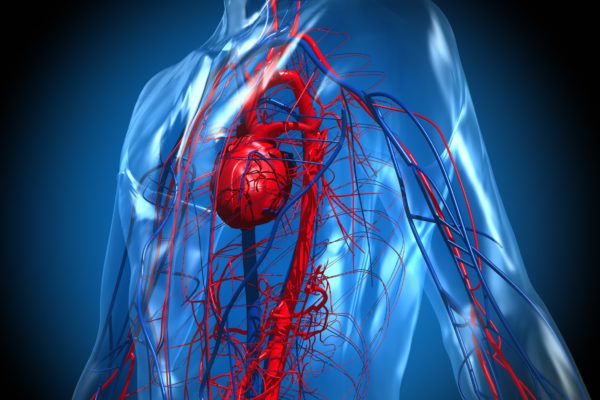
Information on adrenal cancer by allesoverkanker.be (Dutch)
The adrenal glands are made up of two areas; the medulla and the cortex. When cancer develops in the adrenal cortex, it is called adrenal or adrenocortical cancer or ACC. The adrenal glands are situated on top of the kidneys and are mainly involved in the production of hormones such as cortisol, aldosterone and androgens. These hormones are collectively known as steroids. Cortisol plays a part in regulating blood pressure, whereas androgens influence gender traits, such as the growth of body hair in men or regulating ovulation in women.
Another group of hormones that are produced in the adrenal gland are catecholamines, such as adrenaline and dopamine. These hormones play a part in signal transfer in the nervous system.
A cancerous growth in the adrenal gland can trigger excess production of one or more of the hormones mentioned. This is known as a functioning adrenocortical carcinoma. Around 60% of adrenal cancers falls in this category. When there is no excess hormone production, it is called a non-functioning cancer.
Adrenal cancer is a relatively rare and aggressive type of cancer. In Belgium, around 90 people are diagnosed with this disease annually. People between 45 and 75 years old show the greatest chance of contracting the disease.
The symptoms of adrenal cancer are almost always hormone related. They depend on the excess hormone that is produced by the tumorous cells.
A raised cortisol production may cause:
A raised aldosterone production may cause:
A raised production of sex hormones may cause:
In case of a non-functional tumour, other symptoms may occur. These tumours tend to be discovered at a more advanced stage of development because of the lack of coherent symptoms. When these tumours do get detected, patients may display symptoms such as abdominal pain, nausea, weight loss, fever and indigestion.
When children are diagnosed with adrenal cancer, there is often a genetic cause for it. Research has shown that patients with Beckwith-Wiedemann syndrome or Li-Fraumeni syndrome have an elevated risk of developing adrenal cancer. When adult patients are diagnosed, there is usually no correlation with hereditary conditions.
When a GP suspects a patient may have adrenal cancer, they will first perform a series of physical tests, such as blood pressure measurements and abdominal checks. He will also examine the body for signs or hormonal abnormalities, such as excessive hair growth or hair loss and changes to the chest and genitalia. When adrenal cancer is suspected, the patient will be forwarded to a specialist, who will perform further blood and urine tests, often followed up by a CT scan or an MRI scan. The results of these tests will help determine the stage the cancer is in, so that subsequently a treatment strategy can be initiated.
There are four stages of adrenal cancer.
With roughly half of all patients, the cancer will already have progressed to stage III or IV at the time of diagnosis.
The differentiation of the tumour is an important factor in establishing a prognosis and treatment. This can be determined on the basis of a biopsy. A biopsy involves the removal of a small bit of tissue that can be examined under a microscope. Differentiation determines the degree of mutation in the cancerous cells.
The first step of treatment of adrenal cancer is usually operative removal of the tumour, provided the patient is in good health, and the tumour has not progressed beyond stage III. But even when the entire tumour is removed, the chance of recurrence remains very high, at around 75 to 85 percent.
In case removal of the tumour turns out to be impossible, chemotherapy, radiotherapy or administering a cytotoxin such as mitotane can be effective. For patients with metastatic disease, or persistent disease despite surgical resection, steroidogenesis inhibitors can also be used.





